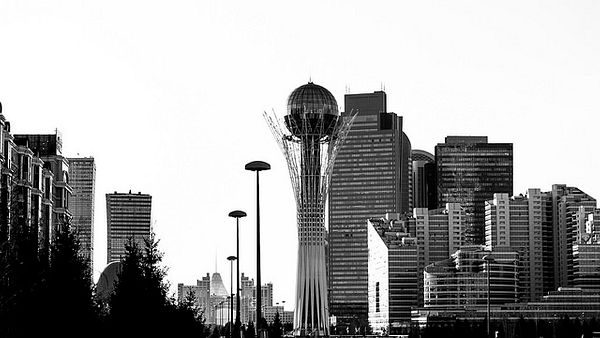
When Kazakh President Kassym-Jomart Tokayev proposed holding a snap presidential election this fall, 18 months ahead of schedule, he followed the announcement with another proposal: limiting the president’s term to a single seven-year term.
“On the one hand, 7 years is a sufficient period to implement any ambitious program,” he said.
From the order of the announcements, it seemed that the election would come first and then the change of term length and introduction of a limit. That suggests the potential (which I noted) that Tokayev could aim for a Karimov-style subversion of term limits and lengths.
A new draft law proposes confirming the single seven-year term limit before the snap presidential election, so as to bind whoever wins to a single seven year term. Already, the Constitutional Council has declared that the changes proposed are consistent with the logic of the reforms passed by referendum this summer.
As it stands, Tokayev is the only viable candidate for the upcoming, though still unscheduled, presidential election. Despite “reforms” to the party registration process, no new parties have been registered in Kazakhstan. Also despite “reforms” to the country’s protests laws, the authorities in Kazakhstan’s largest city Almaty have reportedly refused to allow a group of opposition activists — referring to themselves as the Coalition of Democratic Forces — to hold a rally against the early presidential elections. The authorities say a cultural event is scheduled in the location requested. Opposition figures in Kazakhstan hope to protest and derail plans for a snap presidential election, but also have discussed running a single candidate if the election does go ahead to maximize their potential. The main problem remains that all of the opposition parties are unregistered.
If elected to a seven-year term this fall, Tokayev will serve as president until 2029. If he had served out his full five-year term and then was re-elected in 2024 to another five-year term, as originally scheduled, he would have served until 2029. Either way, Tokayev gets 10 years in power.
The draft law regarding the term limit also proposed, with Tokayev’s approval, switching the name of Kazakhstan’s capital back to Astana.
Kazakhstan’s capital city has been known by many names over the years. Before it was a capital city, it was a town called Akmola, then Akmolinsk in the 1830s as Imperial Russia encroached further into Central Asia. In 1961, amid the Soviet Union’s Virgin Lands Campaign, it was renamed Tselinograd. When the Soviet Union collapsed in 1991, it became once again Akmola. It was only in 1997 that the Kazakh capital was moved from Almaty to Akmola, and the following year it was renamed “Astana” — which in Kazakh means “capital city.” One could say, then, that Astana has always been Astana.
In 2019, immediately after Kazakhstan’s longtime ruler President Nursultan Nazarbayev resigned and Tokayev assumed the presidency, Tokayev proposed the renaming of the capital to “Nur-Sultan” — an obvious nod to the First President, though no one is quite sure where the hyphen came from.
In a Facebook post on September 13, presidential spokesman Ruslan Zheldibay noted Tokayev’s approval of the initiative to revert the capital’s name. Zheldibay, however, also noted that Tokayev considers Nazarbayev’s crucial role in Kazakhstan as a “historical fact” and said that other objects named after the First President should retain their names.
While the matter of term limits and yet another snap presidential election may be more politically consequential, the capital’s name is a flashpoint of public attention. The decision, so soon after Nazarbayev resigned, to rename the city after him sparked great disappointment among some. Various polls at the time indicated public opposition to the move, and online many Kazakhs reacted derisively. One Kazakh historian quipped on Facebook: “Good morning everyone. I am scared of reading the news. Is our country still called Kazakhstan?”
The decision, after three years, to change the name back has some asking how much this rigmarole cost the state. On the surface, the renaming may be — like the announced but not yet operationalized amnesty for those convicted of crimes relating to the January unrest — a populist offering. A public hearing on the name-change proposal is set for September 15.
Of more consequence is the fact that Kazakhstan hasn’t held an election as originally scheduled since independence. Tokayev called his first snap election in the spring of 2019 after Nazarbayev stepped down. Nazarbayev oversaw early elections in 2015, 2011, 2005, and 1999. Kazakhstan’s second presidential election was originally scheduled for 1996 but the 1995 referendum included a provision prolonging Nazarbayev’s term until 2000 — the 1999 election, therefore, was both late and early.
Nur-Sultan No More and Kazakh Tinkering With Presidential Terms
Source: Frappler

0 Comments